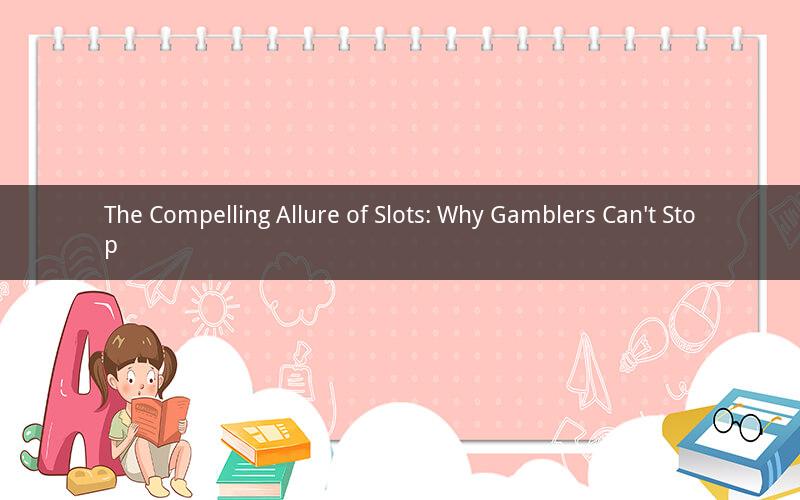
Slot machines, often referred to as the "one-armed bandits," have been captivating players for decades. Their bright lights, mesmerizing sounds, and the promise of life-changing jackpots make them irresistible. For some, the allure of slots is too strong, leading to an uncontrollable urge to keep gambling. This article delves into the reasons behind this irresistible temptation and explores the psychological factors that contribute to the phenomenon.
The Allure of Slots
The allure of slots lies in their design. These machines are engineered to be engaging and exciting. The bright lights, vibrant colors, and thrilling sounds create an immersive experience that can be hard to resist. Additionally, the anticipation of hitting the jackpot and winning big money is a powerful motivator.
One of the key reasons why gamblers can't stop playing slots is the psychological phenomenon known as "variable ratio reinforcement." This means that the rewards are unpredictable and inconsistent. The thrill of not knowing when the next big win will come keeps players coming back for more.
Psychological Factors
Several psychological factors contribute to the irresistible temptation of slots. One of the most significant is the release of dopamine, a neurotransmitter associated with pleasure and reward. When a player wins, their brain releases dopamine, creating a feeling of euphoria. This feeling is incredibly hard to resist, leading to a compulsive urge to keep playing.
Another psychological factor is the phenomenon of "near-misses." When a player comes close to winning but doesn't hit the jackpot, their brain is triggered to seek out the reward. This creates a cycle of anticipation and frustration that can be hard to break.
The Cost of Compulsive Gambling
The allure of slots can lead to serious consequences, particularly for those who develop a compulsive gambling disorder. Compulsive gambling is a mental health disorder characterized by an uncontrollable urge to gamble, despite negative consequences. This disorder can lead to financial ruin, relationship problems, and even legal issues.
According to the National Council on Problem Gambling, approximately 2-3% of adults in the United States have a gambling disorder. For these individuals, the allure of slots is too strong, leading to a cycle of addiction and despair.
Treatment and Support
If you or someone you know is struggling with a gambling addiction, it's important to seek help. There are several treatment options available, including therapy, support groups, and self-help resources. Therapy can help individuals understand the underlying causes of their gambling addiction and develop strategies to overcome it.
Support groups, such as Gamblers Anonymous, provide a safe and supportive environment for individuals to share their experiences and receive guidance from others who have faced similar challenges. Self-help resources, such as online forums and apps, can also be beneficial for those looking to overcome their gambling addiction.
Frequently Asked Questions
1. What is the most common cause of gambling addiction?
The most common cause of gambling addiction is a combination of psychological, environmental, and genetic factors. Individuals who have a family history of addiction, experience stress, or have a thrill-seeking personality may be more susceptible to developing a gambling addiction.
2. How can I tell if I have a gambling problem?
Signs of a gambling problem include hiding your gambling habits, feeling guilty or ashamed about your gambling, spending more time and money on gambling than you intended, and experiencing financial, relationship, or legal problems as a result of your gambling.
3. Are there any medications that can help treat gambling addiction?
While there are no medications specifically designed to treat gambling addiction, certain medications may be used to help manage the symptoms of co-occurring disorders, such as depression or anxiety.
4. Can I overcome a gambling addiction on my own?
While it is possible to overcome a gambling addiction on your own, seeking professional help and joining support groups can significantly improve your chances of recovery.
5. How can I help a loved one who is struggling with a gambling addiction?
The best way to help a loved one who is struggling with a gambling addiction is to be supportive and non-judgmental. Encourage them to seek professional help and offer to accompany them to therapy or support group meetings.